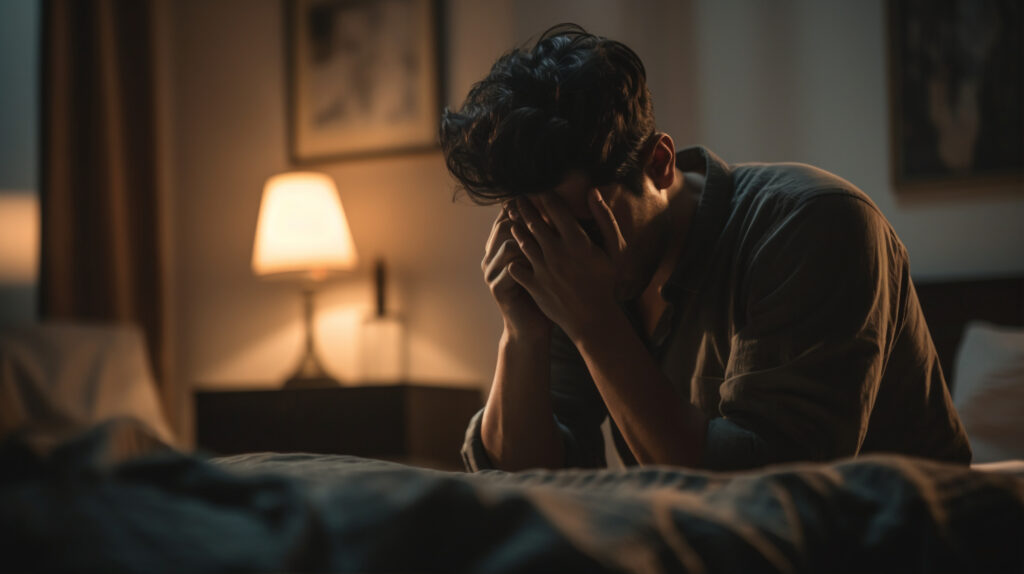Depression is more than just a feeling of sadness; it is a complex mental health condition that can affect every aspect of a person’s life. In this blog, we explore what depression is, its symptoms, causes, potential treatments, and emphasize the importance of seeking professional help from the Best Depression Treatment Doctors in Delhi, Best Depression Psychiatrist Specialist Doctor in Delhi, and Best Depression Treatment Hospital in Delhi.
What is Depression?
Depression, also known as Major Depressive Disorder (MDD), is a mood disorder characterized by persistent feelings of sadness, hopelessness, and a lack of interest or pleasure in activities. It can affect anyone, regardless of age, gender, or background, and has the potential to lead to a range of emotional and physical problems.
Common Symptoms of Depression
The symptoms of depression can vary from person to person, but typically include:
Persistent Sadness: A constant feeling of emptiness or sadness that doesn’t seem to lift.
Loss of Interest: A diminished interest in activities once enjoyed, including hobbies, social interactions, and work.
Fatigue: Persistent tiredness and lack of energy, making even simple tasks feel overwhelming.
Changes in Appetite: Significant weight loss or gain, or changes in eating habits.
Sleep Disturbances: Insomnia or excessive sleeping, both of which can exacerbate feelings of depression.
Difficulty Concentrating: Trouble focusing, making decisions, or remembering things.
Feelings of Worthlessness: An overwhelming sense of guilt or feelings of inadequacy.
Suicidal Thoughts: In severe cases, thoughts of self-harm or suicide may arise, requiring immediate professional intervention.
Causes of Depression
Depression is a multifaceted disorder, influenced by genetic, biological, environmental, and psychological factors. Some common contributors include:
Genetics: A family history of depression may increase the risk, suggesting a genetic predisposition.
Brain Chemistry: Imbalances in neurotransmitters—chemicals in the brain that regulate mood—can significantly impact depression.
Life Events: Traumatic events, chronic stress, loss of a loved one, or significant life changes can trigger depressive episodes.
Health Issues: Chronic illnesses, hormonal changes, and certain medications may also contribute to the onset of depression.
Substance Use: Alcohol and drug use can exacerbate or trigger depressive symptoms.
The Impact of Depression
Depression can have far-reaching effects on individuals, leading to strained relationships, decreased job performance, and poor quality of life. People suffering from depression often isolate themselves, exacerbating feelings of loneliness and worsening symptoms. It can also coexist with other mental health disorders such as anxiety or substance use disorders, complicating treatment and recovery.
Seeking Help and Treatment Options
Though depression can be overwhelming, it’s crucial to recognize that help is available. Here are some common treatment options available at the Best Depression Treatment Hospital in Delhi:
1. Therapy
Cognitive-Behavioral Therapy (CBT): Focuses on changing negative thought patterns and behaviors associated with depression. It is one of the most effective treatments for depression.
Interpersonal Therapy (IPT): Aims to improve relationships and social skills, especially beneficial for depression linked to interpersonal issues.
Psychodynamic Therapy: Explores unconscious thoughts and feelings that may contribute to depressive symptoms.
2. Medication
Antidepressants help balance brain chemicals that regulate mood. It may take time to find the right medication and dosage, requiring close collaboration with a healthcare provider.
3. Lifestyle Changes
Adopting healthy habits can significantly impact mental health:
Regular Exercise: Physical activity releases endorphins, boosting mood and reducing symptoms of depression.
Balanced Diet: Eating foods rich in omega-3 fatty acids, whole grains, and antioxidants can positively affect mood.
Sleep Hygiene: A regular sleep routine can alleviate symptoms of depression.
4. Support Networks
Building a support system, including friends, family, support groups, or mental health professionals, can reduce isolation and provide comfort during challenging times.
5. Mindfulness and Meditation
Mindfulness, yoga, and meditation can help manage stress and improve well-being, promoting awareness of thoughts and emotions to cope effectively with negative feelings.
The Importance of Breaking the Stigma
Despite the widespread nature of depression, stigma surrounding mental health often prevents individuals from seeking help. It is vital to foster a culture of understanding and support where mental health is openly discussed and treated with the same importance as physical health.
Conclusion
Depression is a serious, yet treatable condition that affects millions of people worldwide. By recognizing the symptoms, understanding the causes, and seeking the right professional help from Best Depression Treatment Doctors in Delhi or a Best Depression Psychiatrist Specialist Doctor in Delhi, individuals can embark on the path to recovery.
As J.K. Rowling once said, “It is impossible to live without failing at something unless you live so cautiously that you might as well not have lived at all.” Embrace the journey, seek help, and know that brighter days are ahead. If you or someone you know is struggling with depression, reach out for help. There is always hope and a way forward.
Remember, you are not alone in this battle, and professional guidance, like that from the Best Depression Treatment Hospitals in Delhi, can make all the difference.



